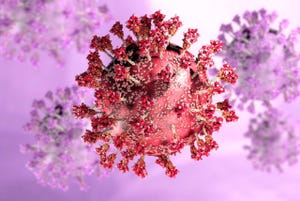Atossa Puts Poison Pill on the Table
May 27, 2014
Seattle-based Atossa Genetics Inc., struggling since FDA forced the recall of its ForeCyte Breast Health Test and Mammary Aspiration Specimen Cytology Test (MASCT), has adopted a two-pronged approach to getting itself out of the woods.
First, it has signed Jelle W. Kylstra, MD, as its new vice president, clinical research and development. Kylstra has experience in pharmaceutical company operations and regulatory approval pathways. His track record includes guiding six oncology drugs, an oncology medical device, two pulmonary drugs, and an osteoporosis drug towards successful registration and/or label expansion with FDA and/or the European Medicines Agency (EMA).
|
Atossa's now-recalled ForeCyte Breast Health Test. (Courtesy Atossa Genetics Inc.) |
Second, Atossa's board of directors has adopted a stockholders rights agreement, a so-called "poison pill" strategy designed to thwart attempts to capitalize on the company's current regulatory difficulties and to force direct negotiations with the board of directors. The measure was "designed to deter coercive, unfair, or inadequate takeovers and other abusive tactics that might be used in an attempt to gain control of Atossa without paying all stockholders a fair price for their shares," the company said in a statement. It will take effect if 15% or more of the company's common shares are acquired by a single person or entity.
Atossa's troubles begin when, in February 2013, it received an FDA Warning Letter for making unapproved and allegedly misleading claims about its products. That Warning Letter led to a Class I recall in November that effectively sidelined the company. Atossa's gross profit for the first quarter of 2014 was 20 percent of the same period the year before.
It seems that Atossa's MASCT test had been cleared for fluid sample collection, and the fluid could be used to determine if cells are normal, precancerous or cancer. But it wasn't yet approved for breast cancer screening. The recall notice said, in part, that the test "has not been cleared or approved by the FDA for any indication or use."
The recall notice continues, "These devices have not been cleared by the FDA for the screening or diagnosis of breast cancer. If they are used for these purposes as marketed by the firm, women ... may experience serious adverse health consequences. These include false positive test results, ... and false negative test results... False positive results may lead to needless patient anxiety, along with further testing and treatment that are not necessary. False negative results may lead to delayed diagnosis and/or delayed treatment of breast cancer, with increased risk of death."
The tests are designed to work together to screen for precancerous cells and cancer, and also to help predict the 10-year and lifetime breast cancer risk for women ages 18 to 65. MASCT noninvasively collects the breast fluid and then ForeCyte analyzes the results at Atossa's lab and calculates a woman's future breast cancer risk.
"We are delighted to welcome Dr. Kylstra to our team as a key step in developing our therapeutic programs..." said Steven Quay MD, chairman, president and CEO. "The ultimate goal of Atossa is to commercialize pharmaceutical therapies to treat the breast health conditions that are detected and monitored with our medical devices and laboratory tests. Dr. Kylstra will play a vital role in the development of these pharmaceutical treatments and related companion diagnostics." He certainly would seem to be the man for the job.
Stephen Levy is a contributor to Qmed and MPMN.
About the Author(s)
You May Also Like



